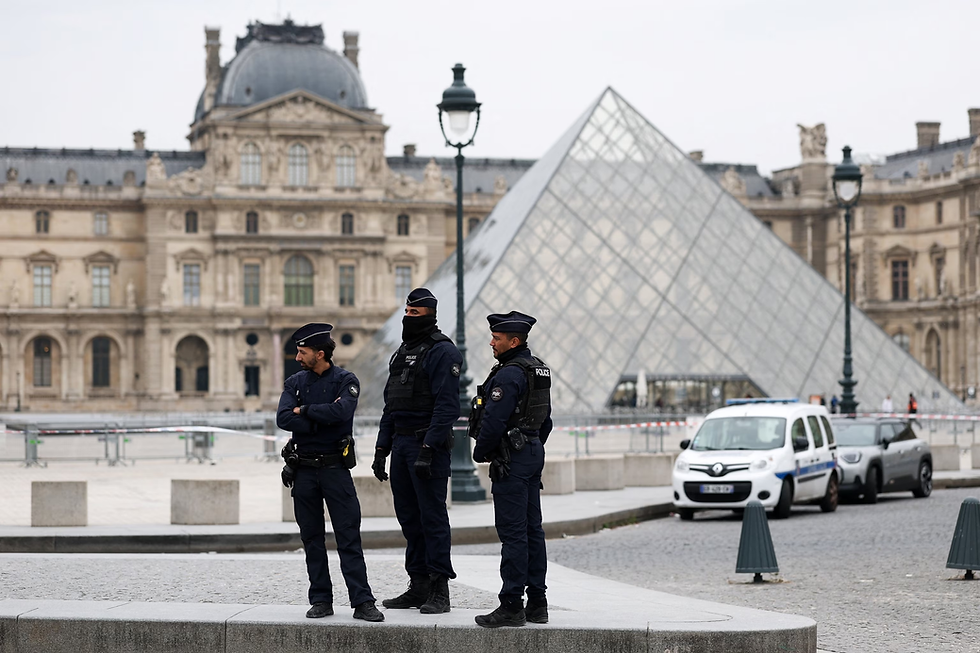Robbery at the Louvre
- Brennan Wills

- Oct 20, 2025
- 2 min read

Between 9:30 AM and 9:38 AM on Sunday morning, the Grand Louvre, hailed by many as the most famous art museum in the world, was the victim of a daylight heist. The prized items stolen were eight of France's crown jewels, considered to have high sentimental value. No one was reported as being hurt.
French authorities say that four men disguised themselves as yellow and orange neon vest-clad workers, used a truck-mounted basket lift and power tools to carry out the robbery. Contrary to what many Hollywood films might suggest, this has been considered by experts as a relatively low-tech heist. Left behind at the scene, the police found:
2 angle grinders
A blowtorch
Gasoline
Gloves
A walkie-talkie
A blanket
A yellow vest (several blocks away)
The entire heist was carried out in under eight minutes, all within the first half hour of the museum's open hours that day.
“It was obviously a very experienced team that acted very, very quickly ... I am confident that we will very quickly find the perpetrators and, above all, recover the stolen goods.” -Laurent Nuñez, Interior Minister, Sunday radio interview
Officials say that the thieves enacted the following plan during the heist:
Parked the truck on the Seine-side to access the balcony
Forced a window open to enter the Apollo Gallery
Smashed two high-security display cases, stealing the jewels
Escaped on two motorcycles
The jewels stolen have a rich history in French culture, some of them even belonging to the wife of Emperor Napoleon III. The jewels are as follows:








The museum closed on Monday while authorities pursue the heist. The Louvre will remain closed until Wednesday, the director said, receiving heavy criticism from the museum's staff (ARTnews). Eager visitors hoping to visit on Monday and Tuesday will be refunded any tickets that they may have already purchased.
The Louvre has a long history of thefts, the most famous one being the theft of the Mona Lisa in 1911, which went missing until it was recovered two years later. Museum and state officials lament that the heist targeted the crown jewels, symbolizing not only the loss of artistic craftsmanship, but the theft of the nation's heritage.
Experts have expressed concerns that if a small group could penetrate the Louvre so easily, then other institutions may be put at risk in ways easier than previously thought.




.png)



Comments